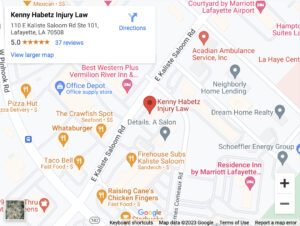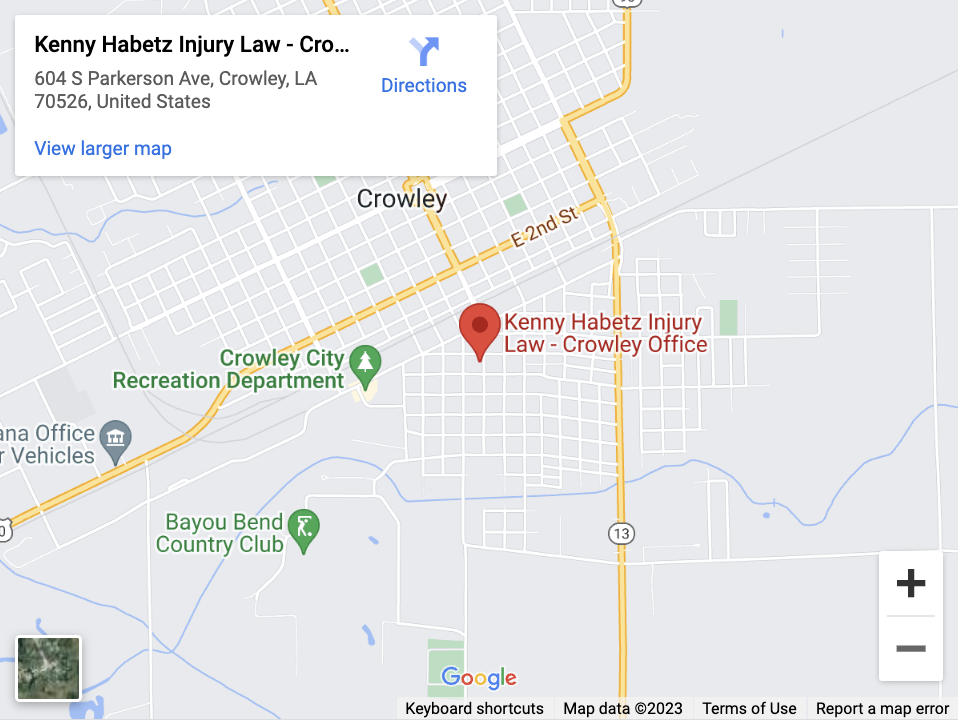
You have probably heard horror stories about dealing with insurance companies. Maybe the insurer repeatedly denied a claim until the claimant gave up. Or perhaps the insurance company offered an insultingly low settlement. In these stories, the person who makes the decision and sends the letter is an insurance adjuster, also known as a claims adjuster.
During your personal injury claim, the insurance adjuster wields enormous power as the insurance company’s representative. Understanding the adjuster’s role will help you work with your lawyer to position your case for a more positive outcome.
How Liability Insurance Works

A liability insurance policy is an agreement between an insurer and a policyholder. The insurer agrees to pay the policyholder’s liabilities to a third party up to a preset policy limit for a covered act or omission.
Some examples of liability policies that might cover the losses from an injury include the following.
Auto Insurance
Auto insurance is the most familiar type of liability coverage. Louisiana requires vehicle owners to buy auto liability insurance for car accidents, including bodily injury liability (BIL) coverage. BIL coverage will pay for the economic and non-economic losses of third parties negligently injured by a covered driver.
Homeowner’s Insurance
Homeowner’s policies pay for many liabilities of the homeowner inside and outside of the home. For example, the policy may cover a claim for a slip and fall injury on the property caused by the owner’s negligence. It usually also covers dog bite injuries by a dog that resides at the home, regardless of where the attack occurs.
Business Liability Insurance
Business liability insurance covers most injuries caused by the negligence of a company’s employees while performing their job duties. A policy might cover everything from slip and fall accidents to accidental food poisoning. However, it may require amendments called riders to cover traffic crashes and other events usually covered by personal insurance policies.
The Role of the Insurance Adjuster
After you suffer a loss due to someone else’s actions, you may have a legal claim against them. If the at-fault party has a policy that covers that type of action, you will likely start your case by filing an insurance claim.
Insurance companies work with claims adjusters to process claims. The adjuster is usually employed by the insurance company, but an insurer can also outsource claims to an independent adjuster.
Both in-house and outside claim adjusters play the same role for the insurer. They investigate and analyze claims to determine whether they fall within policy requirements. In legal terms, they determine whether the insurer is liable for the claim.
Most liability policies cover negligent acts. Thus, an adjuster will typically analyze the policyholder’s actions to determine whether they meet the following four elements:
- A duty of care established by the relationship between the parties
- A breach of duty by the policyholder’s unreasonably careless actions
- Damages suffered by the claimant
- A causal link between the breach and the damages
Adjusters can use any available evidence to investigate a claim, such as:
- Police reports
- Photos and videos of the accident
- Eyewitness statements
- Medical records
If an adjuster determines the insurer bears liability for a claim, they will offer a settlement. Conversely, adjusters will deny claims that fall outside the scope of the policy. Denials can occur for many reasons, including the following:
- The person covered by the policy did not cause the injury
- The event that caused an injury did not fall under the policy
- A covered party did not act negligently
- The injuries existed before the incident
You and your injury attorney can respond to claim denials. A response may include additional evidence and legal arguments to address the grounds cited by the adjuster.
Dealing With Claim Adjusters
Insurance adjusters play an important role in the claims process. They protect the insurance company from paying claims it should not pay. Specifically, adjusters protect the insurer from the following situations:
- Accepting a claim outside the scope of the policy
- Paying too much for a claim
- Missing a legitimate grounds for denial under the policy
On the other hand, overzealous insurance adjusters can go overboard by denying or reducing claims simply to preserve the insurer’s profitability. These adjusters use a variety of strategies to try to minimize insurance payouts, such as:
- Delaying approvals to frustrate claimants into dropping their claims
- Repeatedly denying claims on minor technical grounds
- Denying or reducing certain expenses listed in a claim
- Offering undervalued settlements
Another tactic used by adjusters is to request a recorded statement from claimants.
In a fair environment, this statement should help both the claimant and the adjuster. However, some adjusters misuse recorded statements to support claim denials.
These adjusters may ask confusing questions or twist the claimant’s answers to provide grounds to deny a claim. You should usually decline to give a recorded statement without legal representation.
Insurance Adjusters and Your Claim
Done fairly, the investigative process performed by a claims adjuster should help an insurance company set the value of your claim. However, you should watch out for tactics designed to minimize your settlement.
You should also consider contacting a lawyer to protect your interests, just as the adjuster protects the insurance company’s interests. Get started with a free consultation today. Call Kenny Habetz Injury Law at (337) 399-9000.


